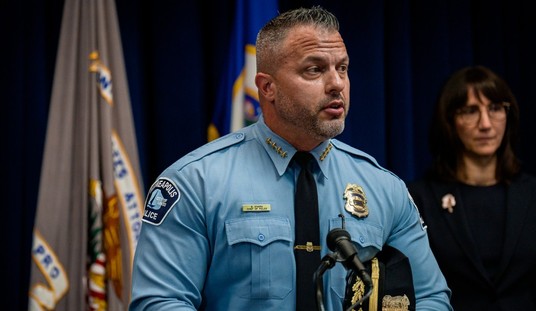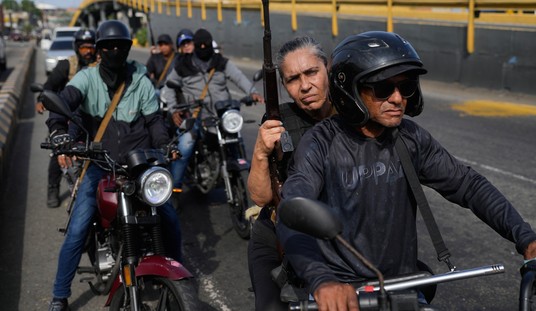Associate Justice Clarence Thomas speaks so rarely in court that it was big news when he said just just four words in 2013, as an aside to Justice Antonin Scalia, the first time he spoke at all in seven years, and then, in 2016, when he asked his first question during oral arguments since February 22, 2006.
It was an important, incisive question, to the attorney making her arguments, “Can you give me another area where a misdemeanor suspends a constitutional right?” in the case of Voisine v United States.1
Justice Thomas was in the majority in the ‘Muslim ban’ case, Trump v Hawaii, and concurring with both the judgement and majority opinion, wrote separately to address a very important, and neglected issue:
I write separately to address the remedy that the plaintiffs sought and obtained in this case. The District Court imposed an injunction that barred the Government from enforcing the President’s Proclamation against anyone, not just the plaintiffs. Injunctions that prohibit the Executive Branch from applying a law or policy against anyone—often called “universal” or “nationwide” injunctions—have become increasingly common. District courts, including the one here, have begun imposing universal injunctions without considering their authority to grant such sweeping relief. These injunctions are beginning to take a toll on the federal court system — preventing legal questions from percolating through the federal courts, encouraging forum shopping, and making every case a national emergency for the courts and for the Executive Branch.
I am skeptical that district courts have the authority to enter universal injunctions. These injunctions did not emerge until a century and a half after the founding. And they appear to be inconsistent with longstanding limits on equitable relief and the power of Article III courts. If their popularity continues, this Court must address their legality.2
This is a hugely important question. How do District Court judges exercise authority beyond their jurisdictions? After several pages noting the history and common law practice of limiting jurisdiction, Justice Thomas noted that the first instance of a universal injunction was in the 1960s, and wrote:
By the latter half of the 20th century, however, some jurists began to conceive of the judicial role in terms of resolving general questions of legality, instead of addressing those questions only insofar as they are necessary to resolve individual cases and controversies. That is when what appears to be “the first [universal] injunction in the United States” emerged.3
No persuasive defense has yet been offered for the practice. Defenders of these injunctions contend that they ensure that individuals who did not challenge a law are treated the same as plaintiffs who did, and that universal injunctions give the judiciary a powerful tool to check the Executive Branch. But these arguments do not explain how these injunctions are consistent with the historical limits on equity and judicial power. They at best “boi[l] down to a policy judgment” about how powers ought to be allocated among our three branches of government. But the people already made that choice when they ratified the Constitution.
In sum, universal injunctions are legally and historically dubious. If federal courts continue to issue them, this Court is dutybound to adjudicate their authority to do so.4
This was a question the majority chose not to discuss, but it is an important one for the arrogation of power but appointed judges holding lifetime tenure. Thus, judges appointed by President Obama (District Court Judge Theodore D. Chuang, appointed September 25, 2013, and District Court Judge Derrick K. Watson, appointed January 2, 2013) were exercising authority over President Trump’s executive decisions.
This is the kind of power judges should not have; anyone who can claim any aggrieved status simply needs to ‘jurisdiction shop,’ to find a federal judge appointed by a president of the opposite party, to hogtie the current president’s power. The left love that now, but eventually, if this seizure of power is not ended, there will be judges appointed by President Trump claiming the authority to undo the next president’s decisions.
Justice Thomas concluded that the Supreme Court would be “dutybound to adjudicate their authority to do so,” but, in reality, that should be the subject of congressional action. Article III of the Constitution states that federal judicial power shall be vested in the Supreme Court and whatever inferior courts Congress chooses to establish. The Supreme Court should not have to wait for the right case to come along to rein in this arbitrary expansion of power by district court judges; the Congress needs to do that, now.
_______________________________
Cross-posted on The First Street Journal.
_______________________________
1 – The Court held, 6-2, that yes, a reckless domestic assault qualifies as a “misdemeanor crime of domestic violence” that prohibits firearms possession by convicted felons under 18 U.S.C. § 922(g)(9). Justice Thomas was in the minority.
2 – Trump v Hawaii, Concurring Opinion, Justice Thomas, pages 1-2, pages 47-48 of the linked .pdf file. Internal references deleted.
3 – Trump v Hawaii, Concurring Opinion, Justice Thomas, page 8, page 54 of the linked .pdf file. Internal references deleted.
4 – Trump v Hawaii, Concurring Opinion, Justice Thomas, pages 9-10, pages 55-56 of the linked .pdf file. Internal references deleted.













Join the conversation as a VIP Member